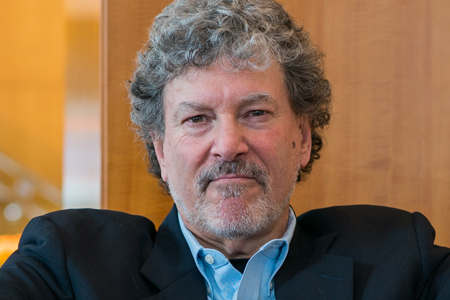Create A Workplace Inspired By Values
By S. Chris Edmonds, Founder, The Purposeful Culture Group
 How healthy is your software organization’s culture today? It doesn’t matter if the organization you operate in is a small business, a department, or a huge multinational — that organization has a culture. And the health of that culture falls somewhere between purposeful, positive, and productive and drama-ridden, frustrating, and only periodically productive.
How healthy is your software organization’s culture today? It doesn’t matter if the organization you operate in is a small business, a department, or a huge multinational — that organization has a culture. And the health of that culture falls somewhere between purposeful, positive, and productive and drama-ridden, frustrating, and only periodically productive.
Leaders are paying greater attention to the importance of a healthy work culture. In a recent Deloitte study, 80 percent of executives rated the employee experience — organizational culture, engagement, and the employee brand proposition — as very important or important. And only 22 percent believe their companies are excellent at building a positive employee experience.
GAUGING THE QUALITY OF YOUR WORK CULTURE
Most leaders have never been asked to manage their work culture. They likely don’t know how. Let’s start by assessing the big three:
- Employee engagement
- Customer service
- Results and profits
Ninety-nine percent of the organizations I’ve studied invest heavily in monitoring results and profits. Many keep close tabs on customer service ratings. Some conduct regular employee engagement surveys. Gather your data on these big three, if it’s available for your current team or organization. If you don’t have data on all three of these, don’t worry — you can work on integrating that data gathering in the future.
Another means of assessing the health of your work culture is a formal culture inventory. Here’s an example from the Culture Effectiveness Assessment, the 50-item questionnaire included in my book, The Culture Engine. These five questions provide an overall snapshot of the degree to which you’ve created a healthy work culture. Rate these items on a six-point scale: 6 for “strongly agree,” 5 for “agree,” 4 if you “slightly agree,” 3 for “slightly disagree,” 2 if you “disagree,” and 1 means you “strongly disagree.” Answer the following honestly from your observations (not from your assumptions):
- Our work environment is bright, clean, and inviting.
- Our work environment delivers safe passage and safe operations.
- Leaders and team members enjoy positive, trusting relationships with each other daily.
- Team members know what they are supposed to do and are activity engaged in doing it daily.
- Internal and external customers are treated with the utmost dignity and respect during every interaction.
Tally up your score. The most desirable scores are 5-6 for each of these five questions. You want to be at 25 points or higher. The average score I see is 15-16. Ask your leaders and team members to score these questions as well. The more honest data you gather, the more accurate the assessment. It is likely that you have some strengths and some opportunities to improve. This just means your organization is normal!
MAKE VALUES AS IMPORTANT AS RESULTS
How can leaders create a consistently purposeful, positive, productive work culture? By making values — how people treat each other at work — as important as results. By creating clear values expectations — defined in observable, tangible, measurable behaviors — and modeling them, coaching them, and holding everyone accountable for them, you place equal emphasis on values and results. And, you use the same demonstrated skills you’ve developed for managing results to manage valued behaviors.
Just as you measure, monitor, and reward results, you must also measure, monitor, and reward desired valued behaviors. Values alignment is a powerful approach. Gains in engagement (40 percent or more), service (40 percent or more), and results and profits (35 percent or more) are common within 18 months of engaging in proactive culture refinement.
Don’t leave your culture to chance. Create workplace inspiration with behaviorally defined values.
CHRIS EDMONDS has helped senior leaders create purposeful, positive, productive work cultures for over 28 years. He is a speaker, author, and executive consultant who is the founder of The Purposeful Culture Group. He’s one of Inc. Magazine’s 100 Top Leadership Speakers, was a featured presenter at South by Southwest, and is the author of the Amazon best seller The Culture Engine.
